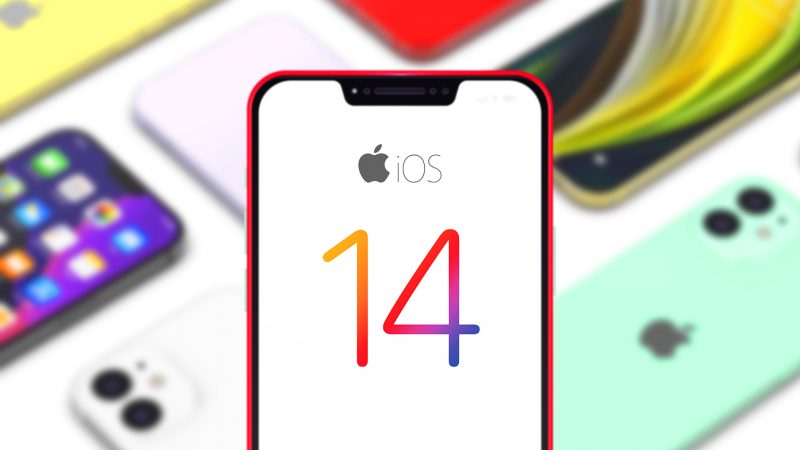February 26, 2021
How iOS 14 Privacy Features Impact Your Facebook Advertising

A new age has fallen upon us all. In late 2020, Apple rolled out sweeping changes to its iOS 14 updates, changing user data tracking permissions. There’s no glossing over it; the new iOS 14 privacy features will impact Facebook ads, with ad performance and effectiveness expected to take direct hits.
In this blog post, you’ll learn about what iOS 14 privacy features mean for your Facebook advertising and how to prepare effectively.
What is the Apple iOS 14 update?
This month, Apple launched a new privacy initiative in its Apple iOS 14 update, requiring a user’s consent to track data across applications owned by different companies. Users can choose to ‘opt out’ at any time. As a business, you’ll need to receive the user’s permission via the AppTrackingTransparency framework to monitor their interactions and display or analyze targeted ads accordingly. In this instance, tracking also refers to sharing user data with information brokers.
If you advertise on mobile apps and optimize, target, and report on web conversion events from Facebook, you’ll be impacted by these iOS 14 updates.
What are the new Apple iOS 14 privacy features?
Here are the following iOS 14 privacy features users may choose to approve or opt-out of:
- Receive targeted ads from apps and websites owned by other companies
- Pass on email lists to a data broker
- Place a third-party SDK that uses data to target advertising or measure advertising performance
- Choose which apps can and cannot track actions
- Enable location sharing with other apps
- Deny an app’s access to the device’s local network
- Block certain apps from using the device’s mic or camera access
- Limit photo access
- Restrict an app’s access to the clipboard
How iOS 14 privacy features affect your Facebook advertising
iOS 14 privacy features will give power to the users to decide when to opt-out. This will mainly impact ad personalization and performance tracking. Considering Facebook created its ads strategy to track people’s browsing patterns, marketers have followed suit. Thanks to the iOS 14 updates, below are four perceived blowbacks your business will be left to grapple with.
Facebook advertising to become less effective
It’s anticipated that losing the ability to personalize ads will result in smaller businesses seeing 60% fewer website sales from ads. A revenue slump from advertising may happen.
Targeted audience limitations to impact growth
As users opt-out of tracking on Apple devices, your app activity Custom Audiences, app connections, and website Custom Audiences are likely to decline. The size of your retargeting audiences could also decrease. Moreover, there will no longer be an option for both app and web conversions to do audience segmentation like picking the audience’s age, gender, region, and placement.
Impact on ad performance tracking
Real-time reporting for iOS devices will no longer be available, so delays in obtaining real-time data are expected. Moreover, 28-day click-through, 28-day view-through, and 7-day view-through windows will no longer be supported for live ad campaigns. Meaning, you won’t be able to obtain a long-term view of how well your ad is faring.
Conversion events restrictions to impact business outcomes
Going forward, you can only configure up to eight conversion events per website domain. So when you create your ad set, you can only choose one of the eight conversion events to optimize for. You’ll probably need to adjust your campaign strategy to comply with these new configuration rules. On the plus side, Facebook will likely configure the events automatically based on your ad activity, so you need not worry.

A step-by-step guide to preparing your Facebook ads for the iOS 14 privacy features
Adjustments to the iOS 14 privacy don’t spell doom and gloom for your business. Facebook is already working on revamping its advertising to counteract these iOS 14 privacy features. Below are some action points to help get you started.
1.Verify your domain
In Facebook Business Manager, verify your domain, especially if you have several businesses or ad accounts set up.
2.Choose eight conversion events
You can only choose eight conversion events for every Facebook Pixel, so you can only optimize for eight conversions. Note that it’s possible to track more than eight web-based events, but you can’t dedicate more than eight events to use as conversion events.
3.Configure your web conversion events
Define your key conversion events for your domain’s pixel. Manage this via your Facebook Ads Manager.
4.Reconfigure your settings to a seven-day reporting window
In your reporting window, change to the seven-day click and one-day view attribution window. By doing this, conversions in your reporting will match the conversions used for ad optimization.
5.Examine campaign optimization strategies and adjust accordingly
Your campaign optimization strategy will likely need testing, such as picking alternative audience options or using different bidding strategies.
If you need more comprehensive guidance, follow Facebook’s guidelines here.
What next?
There’s no sugarcoating it; the new changes to iOS 14 privacy will negatively impact your Facebook advertising. But will it spell an end to your Facebook ad strategy? Most definitely not. Right now, it will take a few months for the marketing community to understand how the iOS 14 changes will impact businesses fully. In the meantime, sit back, and prepare. Above all, don’t panic; your competitors are in the same boat. Follow Facebook’s advice to the letter, and you’ll be just fine.








